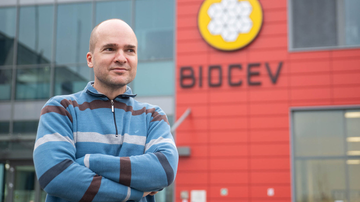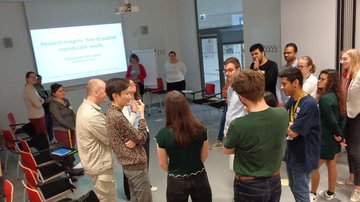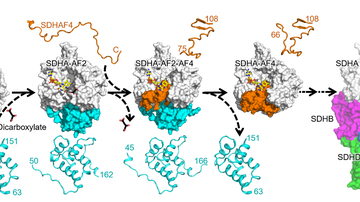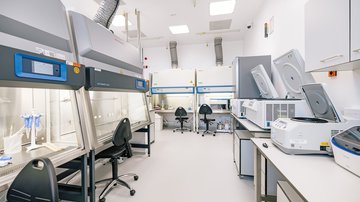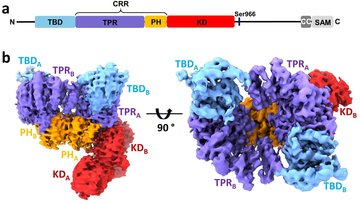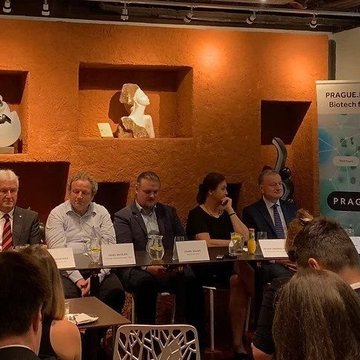
Czech scientists join forces to develop biotechnologies
Praha, 5. září 2023 Prague has a real chance to become a European leader in the field of biotechnology thanks to intensified cooperation between scientific research institutions and commercial partners. The newly established Prague.bio industry association plans to connect science and business to accelerate the development of new drugs, diagnostics and other successful projects that will help fund Czech science. The association wants to create an environment in which it will be easier to create new fascinating stories like the ones of Antonín Holý and Otto Wichterle.
The Prague.bio biotechnology cluster combines research, development, and innovation activities in the fields of medicine and life sciences and brings together key players in research, industry, investment, and government.
"We have extraordinary potential in the field of biotechnology in the Czech Republic. Czech science belongs to the absolute top, and it is one of the areas of science and research where we already have several successfully applied results. At the same time, it is an area that will grow in importance in the future. It is one of the strategic pillars of the Czech Republic's development and one of the main innovation areas on which we should focus," said Helena Langšádlová, Minister for Science, Research and Innovation.
Her words are confirmed by the Mayor of Prague Bohuslav Svoboda. "Biotechnology is one of the strategic goals of the metropolis' development. Prague has a rich history, a varied present and I see a promising future in this. I believe that the new cluster will help strengthen the Czech position in this field."
Daniel Mazur, Prague's Councillor for Smart City, IT, and Science and Research, added: "As a councillor in this area, I naturally welcome the fact that the center for research, development and innovation in the field of biotechnology will be in Prague. The capital supports it. I believe that this center will be an inspiration for other sectors and, most importantly, it will make Prague a place where more groundbreaking discoveries and inventions will be born and tested in practice."
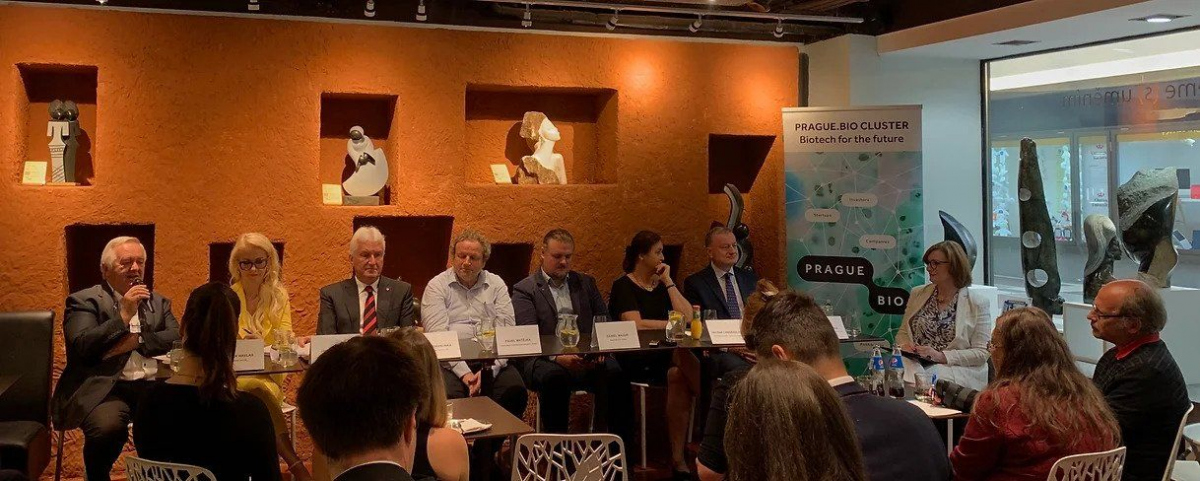
The founding members of the association are:
- Institute of Organic Chemistry and Biochemistry of the Czech Academy of Sciences (IOCB),
- i&i Prague, a subsidiary of IOCB,
- Institute of Biotechnology of the Czech Academy of Sciences,
- Institute of Microbiology of the Czech Academy of Sciences,
- Institute of Molecular Genetics of the Czech Academy of Sciences,
- and University of Chemistry and Technology, Prague (VŠCHT).
- The accession of other academic members, companies, and investors is in preparation.
These institutions represent highly professional centers of research and education with a strong influence on the development of new drugs, diagnostic methods, and other medical technologies.
"The goal of Prague.bio is to become a moderator of the overall development of biotechnology in the Czech Republic, to represent the Czech biotechnology industry abroad, to contribute to greater drug independence in the Czech Republic, and to support the development of drugs that may one day change the fight against certain diseases worldwide," explains Jan Konvalinka, director of the Institute of Biotechnology and Health Sciences.
In many countries, such as Israel, biotechnology is one of the drivers of the national economy. Prague.bio therefore wants to make the most of the domestic potential of biotechnology. This will not only ensure additional revenue for the state budget but also increase the country's independence, which is especially important at present when we are facing a shortage of medicines and medical innovations.
"The transfer of biotechnology already provides Czech science with billions of crowns annually, and biotechnology is one of the most successful and promising fields. However, fewer and fewer drugs are being developed in the Czech Republic compared to Europe; the transfer of research results into the production of innovative drugs, in cooperation with large pharmaceutical companies, can improve this," adds Petr Konvalinka, Chairman of the Czech Technology Agency. Funding for the cluster will be a combination of member contributions, public funds, and money from sponsors and other partners.
In pursuing its mission, Prague.bio wants to be inspired by the success stories of Czech scientists such as Professor Holý and Professor Wichterle, among others. "Even today there is a huge potential of smart minds and skillful hands in our country that can lead to discoveries with a global impact. An example is the breakthrough in the availability of radiotherapy thanks to the discovery of scientists from the IOCB. We will support such projects from the idea itself to the final production or application. At the same time, we are pleased that the creation of the cluster is supported by the capital city and the state," emphasises the cluster director Jana Žaludová.
Pavel Matějka, the rector of VŠCHT, lists other reasons for cooperation. "A huge problem at the moment is antibiotic resistance. If we do not prevent it, in twenty-five years we will be where we were as humanity before the discovery of penicillin. But such challenges cannot be met except through collaboration, both between research institutions and with industry partners and public policymakers."
The Prague.bio biotechnology cluster is open to all important entities in the Czech Republic that are involved in the development of drugs, diagnostics, and other medical technologies, whether they are universities, research institutes, incubators, transfer centres, start-ups, investors, industrial companies or representatives of state and regional governments.
Media Contact:
Martin Kovalčík, +420 777 472 863, kovalcik@iniprague.com







